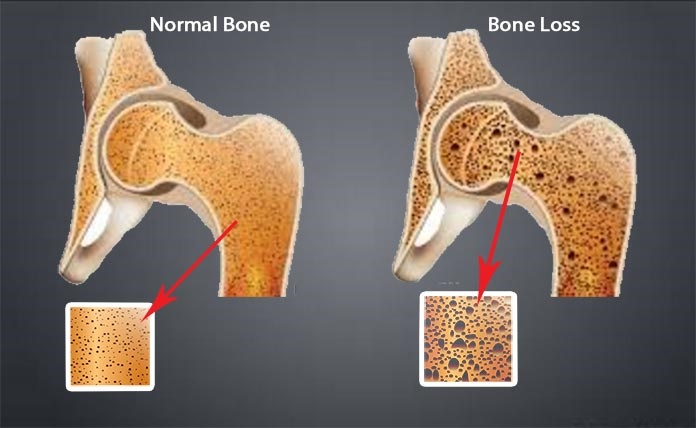
Bone loss creates all kinds of health problems for a person. We cannot control some factors like aging which contribute to bone loss. But there are other factors which can control to a certain extent.
Let us have a look at the ways to control bone loss.
Limit Use of Alcohol
Heavy drinking can cause severe bone-related problems. For example, if a person consumes 2 to 3 ounces of alcohol each day, it can damage their bones. Heavy drinking individuals have a severe loss of bones. People who heavily drunk during their adolescence and young years are more prone to bone related problems. Heavy drinking makes it difficult for the stomach to absorb Vitamin D and it also affects liver function. The liver plays a critical role in activating the body’s Vitamin D.
Exercise
Physical activity is a great way to strengthen bones. Exercise helps improve the bone density. Children who regularly exercise tend to reach their peak bone density. An individual usually reaches their peak bone density at the age of 30. A person who has reached their peak bone density have fewer chances of developing bone related issues at a later age. Weight bearing workouts and resistance exercises help further improve bone strength.
Vitamin D Intake
Vitamin D plays a significant role in helping the body absorb calcium. Even if you are trying to increase calcium intake by taking such diet, you still need to have Vitamin D for better absorption. You can get Vitamin D by exposing yourself to sunlight. It is an excellent way to filling the deficiency of Vitamin D in your body. Second, you can also take diet which is enriched with Vitamin D. Sometimes; we receive insufficient Vitamin D because of less exposure to sunlight. Old Age also slows down the process of creating Vitamin D. Get in touch with your orthopedic physician in Sioux Falls, South Dakota to know more ways to prevent bone loss.
Quit Smoking
Men and women who smoke have its adverse effects on their health. If you smoke, you are more likely to develop heart and lung diseases. In women, smoking results in reduced levels of estrogen which contribute to bone loss. Men who frequently smoke also have a higher rate of bone loss. Smoking reduces the absorption of calcium that our body absorbs from the diet.